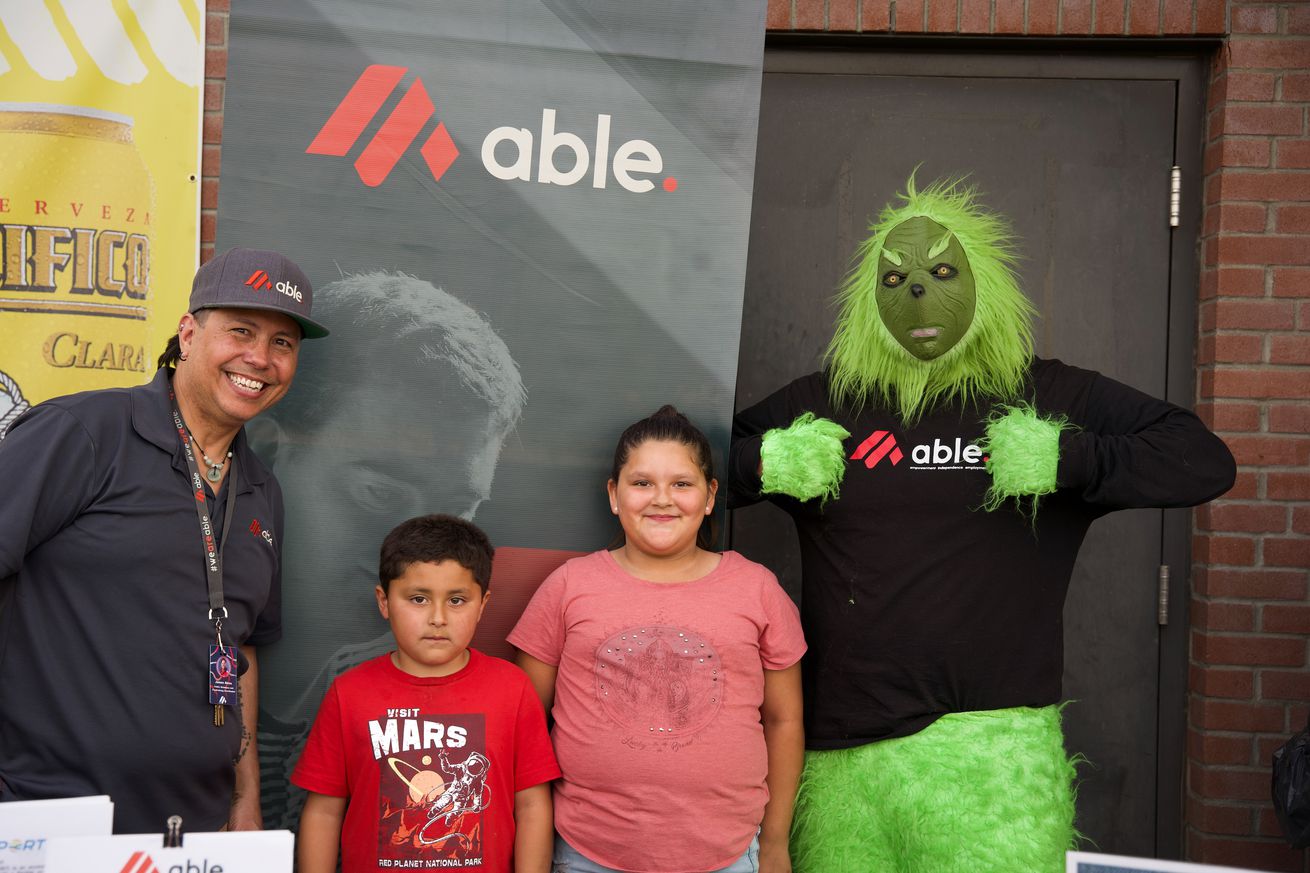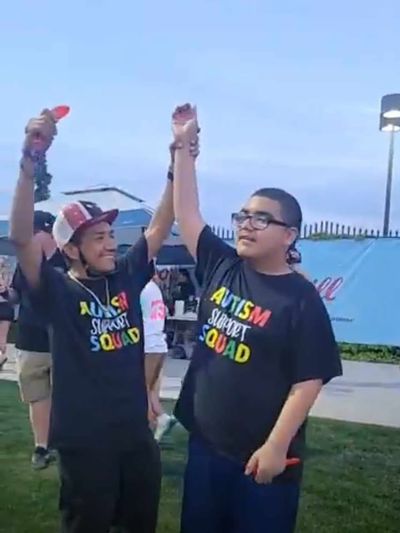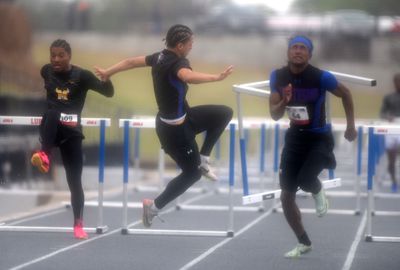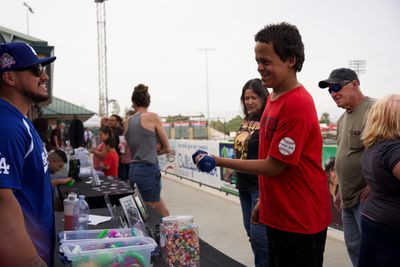
The past week contained wins and losses of multiple kinds
Baseball is a game at once timeless and new, at once simple and complex. One may watch every game intently for decades and still encounter surprises. Yet, at its core, baseball is a simple game, involving simple activities in which people have engaged since long before the first words were written. It is even possible that the idea for writing came from earliest scorekeeping, marks cut into wood measuring how many rocks one might knock down with another rock. Throwing is a primal impulse; catching is a natural corollary, and from the combination of the two, batting easily follows. All these things are simple. Yet the science behind them, the mechanisms by which people do these simple things, are almost beyond comprehension. It has taken the advent of extremely high frame-rate cameras to reach the beginning of an understanding of the mechanics behind throwing, catching, batting. The “science of baseball” has enabled a greater understanding of such things than ever before. But the soul of baseball remains elusive, and science is at a loss to explain everything. In the face of the game, science itself must fall silent and return to its roots and simply observe, simply accept all that transpires and fit events into theories, rather than twisting events to fit previous theories.
Baseball is orderly until, suddenly, it no longer is. Baseball is predictable, until it isn’t.
Baseball, as an event, appeals to the five senses: the fresh-cut grass and wet earth of the field, the sound a curveball makes as it flies towards home plate (followed by the sound of ball hitting glove or bat hitting ball). Fresh uniforms (ideally) under a perfect blue sky, the feel of the air in the summer evening, the taste of the ballpark food. Baseball offers something for everyone. One need not know the intricacies of the game to know the enjoyment of an afternoon or evening at the ballpark; one need not possess the means to express full appreciation of the prodigality of the game to enjoy the simple activity of being there.
Baseball is essentially meaningless. But so are most things which ease, however so slightly, the burden of life. So are most “pastimes.” According to the Oxford English Dictionary, a “pastime” is “a diversion or recreation which serves to pass the time agreeably.” Circular as this definition is, it hits at the basic point: one must pass one’s time in some manner or another. Our time will be passing whether we will or nil, and that time will be filled with one activity or another.
Baseball is human.
People, like baseball, are simple. We have the same basic needs and engage in the same basic activities. But, again like baseball, a dive below the surface and each person is complex beyond comprehension. The more we study, the more we learn how far away from understanding we are. Despite all of us having the same basic needs and the same basic drives, humanity displays manifold variation in stature, in taste, in appearance, in personality. And in ability.
Life is normal and predictable, until it isn’t.
I am one of the 28% of adult Americans with a diagnosed disability. Many people who know me fairly well were probably unaware of this until recently; many may still be unaware. I am also the parent of three children, two of whom have their own developmental disabilities, which sometimes require radically different accommodations, as they are radically different people.
For the parents of a special needs child, going to the ballpark is anything but simple. Sure, it can be simpler than many aspects of life, such as medical testing, which is a simple term to describe something that can be traumatic for parent and child. Holding a two-year-old still so they can undergo an EEG, all the while feeling like you are betraying them, wondering if they will trust you to hold them after this. Minutes are longer than hours; days, even. Taking them to therapist after therapist. Sleepless nights. Eventually, the sleeplessness and constant waiting rooms become the predictable and normal, a reversal of the childhood you expected. The pitchers are batting, the position players pitching, and the fielders are all T-ball players. The game now seems a humorless farce. But this is only the way it appears from the surface, for underneath still dwell all the same currents and forces with the capacity to enthrall and delight.

Courtesy Visalia Rawhide
Parenting a child with a developmental disability seems extremely complex. But it is not the parenting that is complex, it is everything else. Parenting is still simple: learn needs, meet needs, keep the kids alive through another day. Difficulties are found not with the children, but with the surrounding world that is naturally unfriendly. Simple things like grocery shopping are difficult, and taking the kids to the playground (with so many potential hiding spots) can seem impossible. Focus too much on these difficulties, and despair sets in. Focus on the simple side, on the smiles and laughter, the basic needs, the love between parent and child, child and parent, and despair flees.
Disabilities are manifold, but they are always unexpected. Suddenly everything changes, nothing is predictable, and the world has swept parents off their feet. They might go in an instant from preparing the nursery to learning how to use a feeding tube. Normal activities become impossible. Friendships are lost because of the time commitments, and because it’s just too difficult to go anywhere. A baseball game would be a welcome respite, but how do you plan such a thing when you don’t know how your kids will handle it, when it will take so much extra preparation, and when you cannot expect help or accommodations.
People with disabilities have the same desires as other people: acceptance, belonging, and love. Parents of people with disabilities want to see their children being included, but not as a compulsion or despite who they are. We want inclusion for our children that accepts and celebrates who they are.

Annie Rice/Avalanche-Journal / USA TODAY NETWORK
When people with disabilities and parents of people with disabilities consider whether or not to attend an event, the first assumption is that it will be difficult. We cannot assume that any given event will have the things that we need. If there is a need for anything unusual or special, we have to bring it ourselves. And while we are generally allowed to bring our own food, for example, to a place that does not otherwise allow outside food, doing so will require dealing with questions, hassles while waiting for the right person, etc. Our inclusion in events feels contingent upon our ability to pass as normal. Yes, the vast majority of people want to include us, want us to be able to be a part of things. Their desire, their intention to include us is not the problem. The problem is that inclusion is difficult. Real inclusion requires adaptation. Adaptation requires communication—on both sides. People with disabilities or parents of people with disabilities are used to making do; it only takes one bad experience with asking for something and being treated like a difficulty to learn not to ask.
Looking at the promotional calendars of baseball teams, it would be easy to conclude that dogs are more welcome at the ballpark than people with disabilities. While there are major league teams increasing accommodations (the Diamondbacks creating a sensory-friendly space at Chase Field being one example) and there are a few minor league teams having events, they are few and far between. In one extreme case, a search for the term “access” on the promotional calendar returned all of the “Bark at the Park” days, highlighting all of the things that a dog could do, while none of them had anything to do with improving the access of people. Sometimes, people with disabilities are lumped in with everyone else, in a “Diversity and Inclusion” event. But many people with disabilities do not believe that events termed “diversity” are intended for them, seeing them as race, gender, or sexual orientation focused. (And, in fairness, they often are.) One team advertises their day as “for every demographic possible.” While that certainly includes the various disability communities, it also indicates that while our presence might be welcome, it would be foolish to expect anything in the way of accommodations for that presence. I recently found this true at an event which was extremely inclusive and at which I knew I was welcome, but which was difficult, stressful, and disorienting to me. People with disabilities have to navigate the stress and difficulty in our daily lives, and so we frequently lack the bandwidth to do so in what are supposed to be our hours of relaxation.

Jane Tyska/Digital First Media/East Bay Times via Getty Images
But people with disabilities need pastimes, too. We are no less than others, just different.
And this is why Tuesday night in Visalia was important. It was more than a baseball game, and I’m not talking about the drone delay in the third inning.
Valley Strong Ballpark is the smallest stadium in affiliated ball. It technically wasn’t full, although the announced attendance of 1,985 is more than the number of seats, but capacity when including the grassy berm would be higher. Nor was I physically present, although I was watching live and there in spirit as the Rawhide welcomed people with developmental disabilities and their families, free of charge. It’s difficult to verify, given the sheer number of professional teams in so many different sports, but this may be a one-of-a-kind event in professional sports. While it is possible that some might gripe at the free admission, this is in fact the best accommodation that any place can offer. With such a wide variety of needs in the community, with so many barriers to access that cannot be easily overcome by an organization (no matter how well meaning) taking away the cost of attendance is a welcoming gesture. Free admission is an acknowledgment of an immense cost in energy involved in getting to and being at the game. It is a powerful signal to the community that people with disabilities are not simply allowed to attend, but that their presence is valued. Afterwards, one parent said that the event was the first time her son felt like he fit in. Even I, over a thousand miles away and with many ballpark experiences, felt included in a lesser sense as I saw people like my son included in the typical between-inning events. For that matter, I have been included by the Rawhide, who have graciously worked to provide information and images.
But the connection between the special needs community in Visalia and baseball goes back more than twenty years, before the Diamondbacks were affiliated with the now-Rawhide. In 2003, Gary and Jennifer Geiger founded the Miracle League of Visalia, which was just the second Miracle League in existence. The Miracle League believes that “every child deserves a chance to play baseball.” As a result, they provide adaptive opportunities for children to be part of a team and participate in the game to the extent possible. It was in partnership with the Miracle League of Visalia that the Rawhide began the practice of having a night for people with special needs. And miracle leagues have spread throughout the country (including Puerto Rico) as well as into Canada and Mexico. There are now over 300 miracle leagues, providing children who would otherwise not be included the opportunity to play baseball.
The importance of that opportunity was driven home on Wednesday, when the Secretary of Health and Human Services, Robert F. Kennedy Jr., gave a press conference in which he repeated a number of stereotypes about one particular developmental disability (autism) that the community must constantly struggle against. He said that autism destroys families; it is true that parents of special needs children have a higher rate of divorce than other couples, but this has much more to do with the lack of accommodations, as well as the fact that being married can cause families to make too much money to qualify for benefits. These are societal problems, not issues with autism in itself. Events like Tuesday night’s, which seek to dismantle some of the barriers to families with special needs, help to alleviate some of the strain that society places upon us.
The Rawhide partner with Able, Inc. for “Free to Be Me Night”. Able is a non-profit organization that provides job training and employment placing (as well as other trainings aimed at increasing the independence of people with disabilities) for people with disabilities throughout Tulare County, where Visalia is located. Secretary Kennedy, (echoing things which have been said about people with disabilities for years) declared that people with autism cannot have jobs, pay taxes, play baseball, write poems, and so on. But Able’s job placements are not only with the typical filing and stamping envelopes jobs that many people think of. Able prepares people for roles in warehouses involving tasks such as operating forklifts and other heavy equipment. They have placed an individual on a local dairy production line “a fast-paced, demanding role that highlights the capabilities of our participants when given the right training and opportunity” says James Alves of Able. What Kennedy said was “deeply disappointing and simply false.” In fact, without acceptance of autism and a willingness to work on meeting people with autism and other developmental disabilities where they are, it becomes far less likely that they will become taxpayers. Acceptance and expanded capacity are related.

Courtesy Visalia Rawhide
I cannot know Kennedy’s heart. There’s a chance that he is well-meaning and simply uninformed, that he needs to get involved with an event like Tuesday’s or an organization like Able and learn the truth of things. Nor is this a political issue. People with autism belong to both political parties and have as vast a diversity of opinions as “neurotypicals.” The juxtaposition of the welcome extended to the community by the Rawhide, followed by the depiction of the community as a problem by Kennedy, was enough to give one whiplash.
Kennedy’s words generated an automatic backlash from members of the autism community, many of us highlighting the fact that we have done all or most of the things he claimed that we cannot do. The abilities of some people with autism to do some things, however, is ultimately meaningless. The fact that there has been a professional baseball player with autism is immaterial. Because our worth is not contingent upon our ability. Even the people with disabilities that will result in their not being able to do many of the things that most people take for granted still have intrinsic value simply for existing. It does not matter that I have written poetry, or that Able has trained people who have succeeded in demanding jobs, or that Eva Erickson is winning challenges on Survivor (as she did on the episode that aired Wednesday night after Kennedy’s press conference) or that Tarik El-Abour played professional baseball. What does matter is that people with disabilities and families of people with disabilities are valued and included. If Tuesday night in Visalia helped even one person feel that they are valued simply for existing, it did good that no amount of ignorance can ever take away.
Events on the Field
Four teams played six games apiece on the field in the past week, with mixed success.
Reno lost their series at home against Round Rock, losing Sunday in extra innings. Jordan Lawlar went 9-for-22 with three home runs, two doubles, and a triple. The only downside to his week was striking out on three pitches to end the game on Wednesday as a pinch hitter. The Aces remain home this week, facing the Springfield Albuquerque Isotopes.
Amarillo lost their third straight series to start the year and now find themselves a 4-11. But they did win a game started by someone other than Spencer Giesting for the first time this season, as they emerged victorious on Saturday thanks to an excellent start from Roman Angelo, who had struggled mightily in his previous two starts. They will return home to face San Antonio.
Hillsboro failed to win a series for the first time this year, splitting with Spokane. Druw Jones and Ryan Waldschmidt are both cooling off after blistering starts. In fact, no one had a great offensive week, but the pitching was mostly solid, and guys were still drawing walks. The Hops remain home to face Tri-City.
Visalia avoided getting swept, but find themselves with Amarillo at 4-11 on the season. The Rawhide were outscored 34-16 over the week. Slade Caldwell went 8-for-19, with four of those hits doubles. He does have more strikeouts than walks now, though. The Rawhide will now sojourn in Lake Elsinore, in what will be a battle of the team that has scored the fewest runs this year (the Rawhide, with 64) against the team that was allowed the most (the Storm, who have allowed 120.)
Other Prospect Updates
It wasn’t a great week for a lot of the top prospects, who seem to be having a rough adjustment to the new year.
Demetrio Crisantes picked up just four hits, and most shockingly, just one walk. He seems to be trying to contact his way out of the slump, which means he hasn’t struck out any more and is making plenty of contact, but his BABIP is extremely low.
Yilber Díaz struggled in two starts, walking nine and striking out just five. The Express Roundly Rocked him to the tune of a .970 OPS. This follows a rough single outing in Salt Lake.
Tommy Troy was the picture of consistency, getting a single in every game. His hitting streak stands at 11 games, but he did strike out ten times against one walk.
Jansel Luis had two multi-hit games, but just one hit the rest of the week, and isn’t drawing walks. He posted a .501 OPS for the week.
LuJames Groover came back from his brief injury, went 4-for-14, walked twice, and got hit by pitches twice. He is committing errors, but is being given a consistent run at third base.
Yassel Soler had a dismal week, going 1-for-20.
Connor Foley struggled in his start for the Rawhide.
Gavin Conticello went 6-for-20 with a double, a triple, and a home run. He also walked three times against three strikeouts.
Alberto Barriga went 6-for-18 with a double.
Injury Updates
Jose Castillo and Cristain Pache both returned to Reno from the IL this week. Blaze Alexander’s rehab assignment came to an end, with his being officially optioned.
Joe Elbis was moved from the injured list to the restricted list.